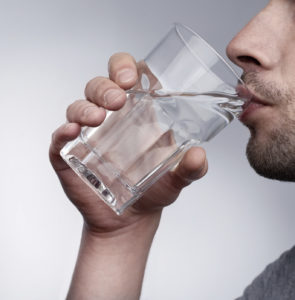Dry mouth is an often overlooked problem, because it is associated with a temporary discomfort without considering what causes it is associated with or what consequences it can lead to. In this article we will try to investigate the symptoms and causes of this disorder which is actually a real pathology, clinically called xerostomia, which can lead to loss of taste and damage the health of the teeth.
Why do we have dry mouths?
 The dry mouth phenomenon (xerostomia) occurs when the salivary glands do not produce enough saliva. Often this problem is caused by the general dehydration of the body, drinking water is in fact also fundamental for the health of the oral cavity, in other cases instead the causes can be the following:
The dry mouth phenomenon (xerostomia) occurs when the salivary glands do not produce enough saliva. Often this problem is caused by the general dehydration of the body, drinking water is in fact also fundamental for the health of the oral cavity, in other cases instead the causes can be the following:
- stress or anxiety;
- pharmacological treatments;
- cold;
- diabetes;
- radiotherapy;
- Sjögren syndrome.
Salivary deficiency can be harmful to dental health. Saliva in fact maintains the right balance of bacteria in the oral cavity and limits their proliferation.
Saliva also has other functions: it eliminates food residues, promotes swallowing and digestion, preserves the sense of taste.
Anxious states and a particularly stressed life can promote dry mouth, as well as alcohol abuse or excessive cigarette consumption.
Dry mouth is also a side effect of many drugs including:
- antidepressants and anxiolytics;
- antihistamines;
- decongestants;
- diuretics;
- antidiarrheal;
- drugs for Parkinson’s disease;
- muscle relaxants.
Chemotherapy and radiotherapy can also cause dry mouth: the first because it can affect the amount of saliva produced, while the second because it could damage the salivary glands and therefore follow up on a reduction in saliva.
When the dry mouth disorder is due to a pharmacological cure, it can be remedied by informing the doctor that he will reduce the dosage or modify the drug.
Dry mouth is also a consequence of an influenza state, a direct cause of nasal congestion and therefore of partial breathing.
In Sjögren’s syndrome, the immune system, due to a dysfunction, attacks the salivary and lacrimal glands destroying them, giving rise to: xerostomia (dry mouth) and dry keratoconjunctivitis (dry eye).
Whatever the origin of the dry mouth, the main symptoms are as follows:
- chewing and swallowing problems;
- partial or total loss of taste;
- heartburn;
- dry tongue and lips;
- dry and sticky mouth;
- oral lesions;
- difficulty in digestion;
- bad breath;
- presence of caries.
If the sensation and annoyance of dry mouth persists over time, it is important to fix the visit to the dentist as soon as possible. The dentist through specific tests (blood tests, analysis of the salivary glands, measurement of the amount of saliva produced) will have a complete clinical picture.
How to relieve dry mouth ailments
To alleviate dry mouth disorders it is advisable to:
- drink plenty of water even between meals;
- avoid sodium-laden foods;
- avoid excessive consumption of caffeine;
- avoid alcohol and smoking;
- maintain correct and constant oral hygiene;
- use dental floss every day;
- use mouthwash;
- avoid sugar-laden foods that could promote tooth decay.
Periodically fixing the visits to the dentist is the only way to constantly monitor the health of the mouth, timely treating the symptoms allows you to avoid harmful complications.
















